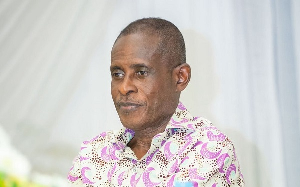While several Ghanaian bureaucrats believe Ghana Airways has gloomy chances of survival without foreign takeover, many African airlines are emerging aviation powers. Airlines namely Kenya Airways, Ethiopian Airlines, South African Airlines, Air Zimbabwe, and Air Mauritius, resurfaced from gloomy pasts like Ghana Airways, rising to prominence, after resuscitation through a fleet renewal program. Despite efforts to keep Ghana Airways from stalling, the airlines future truly remains gloomy, unless current management efforts are complemented by fleet overhaul.
All over the world Government and Airline management realize success of airlines business, depends heavily on it’s fleet. Foreign takeover would only be viable through a fleet renewal program. A unique industry, service oriented and seasonal reliant, the Airline industry is capital and labor intensive (massive amount of investment and experts) Contrary to popular expectation airline profit is marginal between 1 to 2 percent. In light of this, business oriented airlines adopt several strategies to boast profit. In today’s competitive aviation market place, aircraft selection is perhaps the most important aspect of an airlines overall financial success. Airlines decide on what type of aircraft to purchase or lease, the number of aircraft needed in its fleet to support projected demand and markets they serve. Considering it’s sensitivity these decisions are not made hastily, or by one top manager.
Decisions involve professionals from many departments such as flight operations, marketing, finance, human resources and the environmental department within the airline. In fleet planning many factors are addressed: The airlines cooperate objective, National strategic consideration, an examination of crew availability and capability, global economic projections, competitor’s business strategy, potential alliance partners, finally lease or purchase options. Individual aircrafts are then carefully studied, evaluated and acquired.
Ghana Airways may have purchased its current fleet of DC 9 and DC 10’s as a means of leverage while other African nations purchased or leased newer and modern aircraft. Had they opted for new aircraft, the depreciation unit would have been four to five times the ownership cost of used aircraft currently making up Ghana airways fleet. A strategy once employed by low cost - high frequency airlines. In Ghana’s case this was gross miscalculation. It’s obvious fleet planners of Ghana Airways sidestepped several important considerations, while implementing it’s last fleet expansion program.
Today Ghana airways, operates a fleet of obsolete and counter productive aircrafts. As far back as 1992 airlines aggressively embarked on phasing out these obsolete birds. Today very few airlines operate these aircraft, the few that do, operate them on large economies of scale and integration of modern and highly efficient aircrafts. Ironically Ghana airways purchased many of it’s fuel guzzlers during the mid 1990’s when they were history to several airlines. The crippling financial state of Ghana airway can be attributed to these aircrafts in the airlines inventory. An alternative to the DC 10 would drastically have cut fuel cost eliminated it’s 3 man crew requirement and all associated cost of salaries, per dium, housing as well as regular recurrent training stipulated by ICAO regulations. Servicing, maintenance and long down times for these obsolete fleet desires much to be said. With past corporate blunders, the question is, why would a cash trapped airline lease an obsolete DC 9. To compound matters, Ghana airway wet leased (leased with crew provided by leasing company) its DC 9’s, while its pilots languish. This move can be rationalized if the airline dry leased (lease without crew) the aircraft. Having long outlived their glory DC 9 and 10’s are highly counter productive. In comparison with modern aircraft DC 9s and DC 10’s are generally known for fewer seats, lower load factors, fuel inefficient and an overall low productivity. The counter productive nature of these Aircraft compelled airlines to replace them with different airplanes based on market and route needs.
Typically the 3 engine, 3 man crew DC 10 popular for long haul routes was replaced by the more efficient 2 engine 2 man crew Boeing 767, Airbus A 300-600, A 340 and in more recent times the Boeing 777. A move from the DC 10 to these modern aircraft has saved airlines no less then a 35 percent cut in operating cost. With Boeing 737 and MD 80 replacing the DC 9 airlines realized a good 23 percent increase in productivity. The more recent Boeing 717 manufactured particularly to replace the DC 9 delivers a good 34 percent operating cost advantage. Regional jets popularly known as RJ, boast productivity by 38 to 41 percent depending on type. In addition these newer aircrafts are environmentally friendly, noise compliant and require far less maintenance hours to operate, Results being increased revenue and drastic reduction in operational expenditure.
Fleet renewal does not necessarily imply an outright purchase of modern aircraft, rather eliminating or retiring highly unproductive aircraft and replacing them through leases or lease to purchase options. Considering the current state of Ghana Airways, a more viable option would be long term leases rather then an outright purchase of aircraft. Leasing has become a popular and favorite alternative for several carriers around the world. Overall operations of Ghana Airways can be revamped through a fleet renewal program based on traffic forecast, aircraft need projection, operational cost comparisons involving modern aircraft and strategic national considerations. Best-suited aircraft will eliminate massive ongoing waste and maximize the airlines profit potential while offering passengers the highest standard of flight comfort. It’s impact will lead to substantial improvement in service quality, dramatic increase of flight reliability and massive growth potential for the airline and nation at large.
Certified Flight Instructor (CFII).& Commercial Pilot.

Views expressed by the author(s) do not necessarily reflect those of Ghanaweb.














